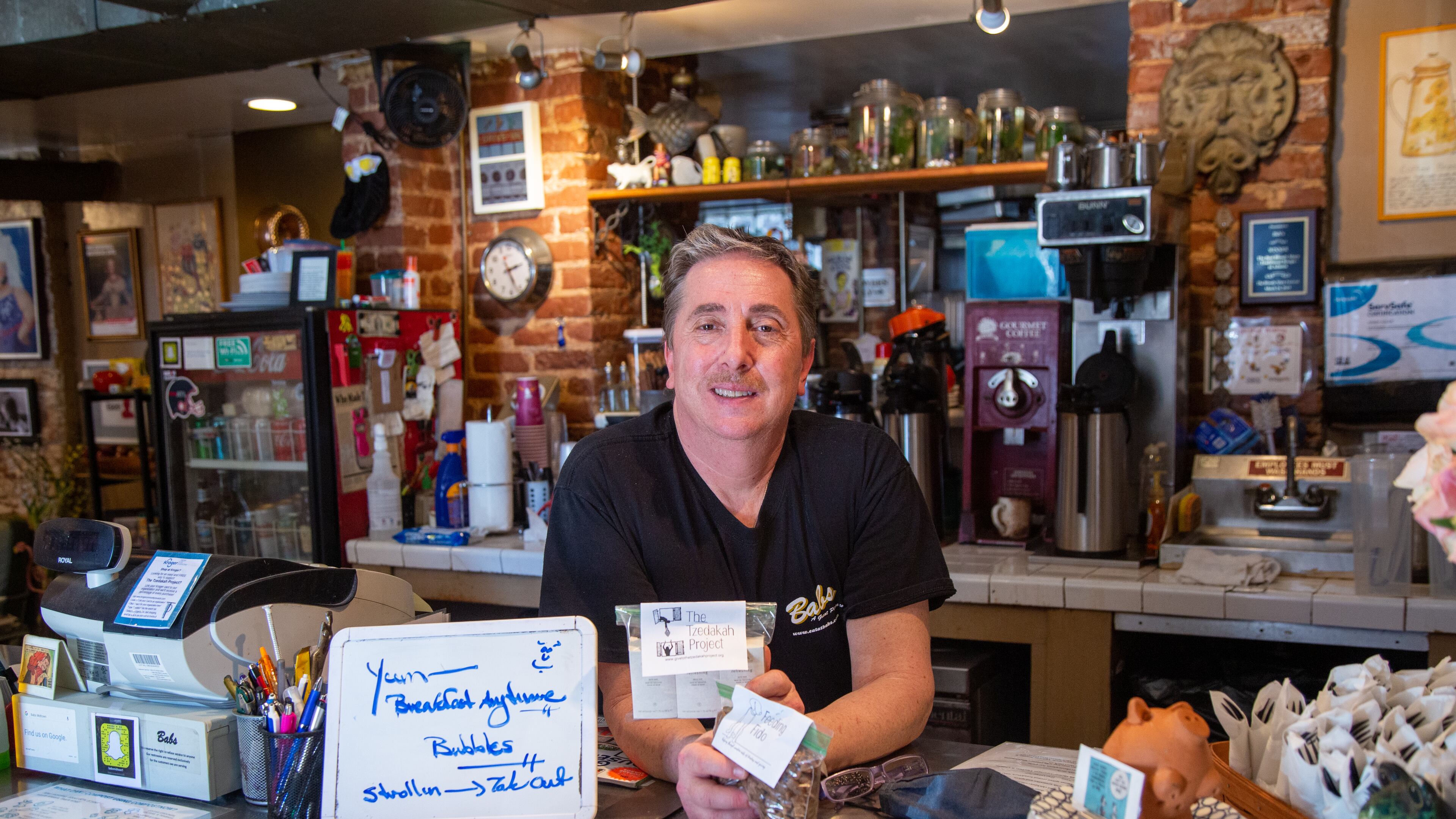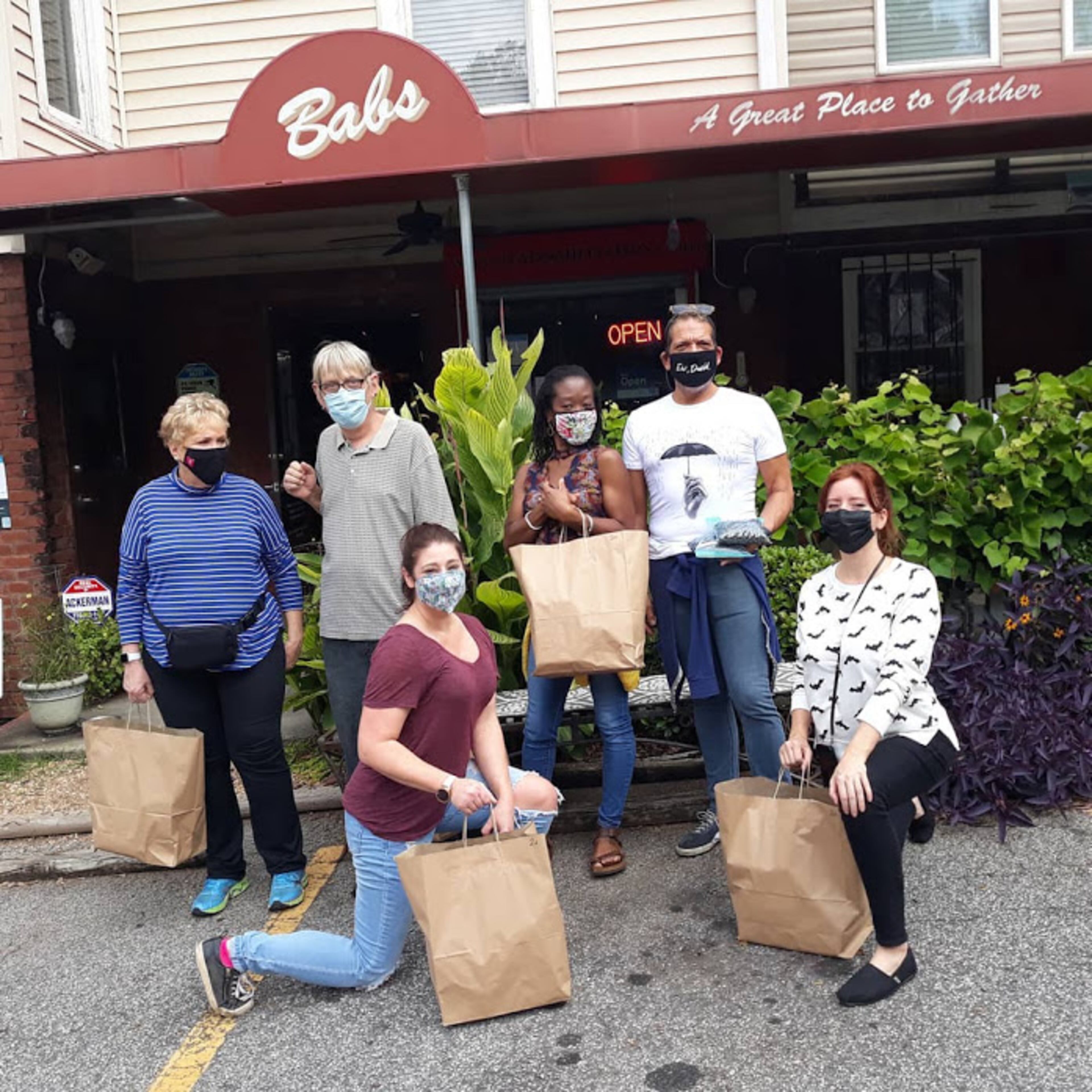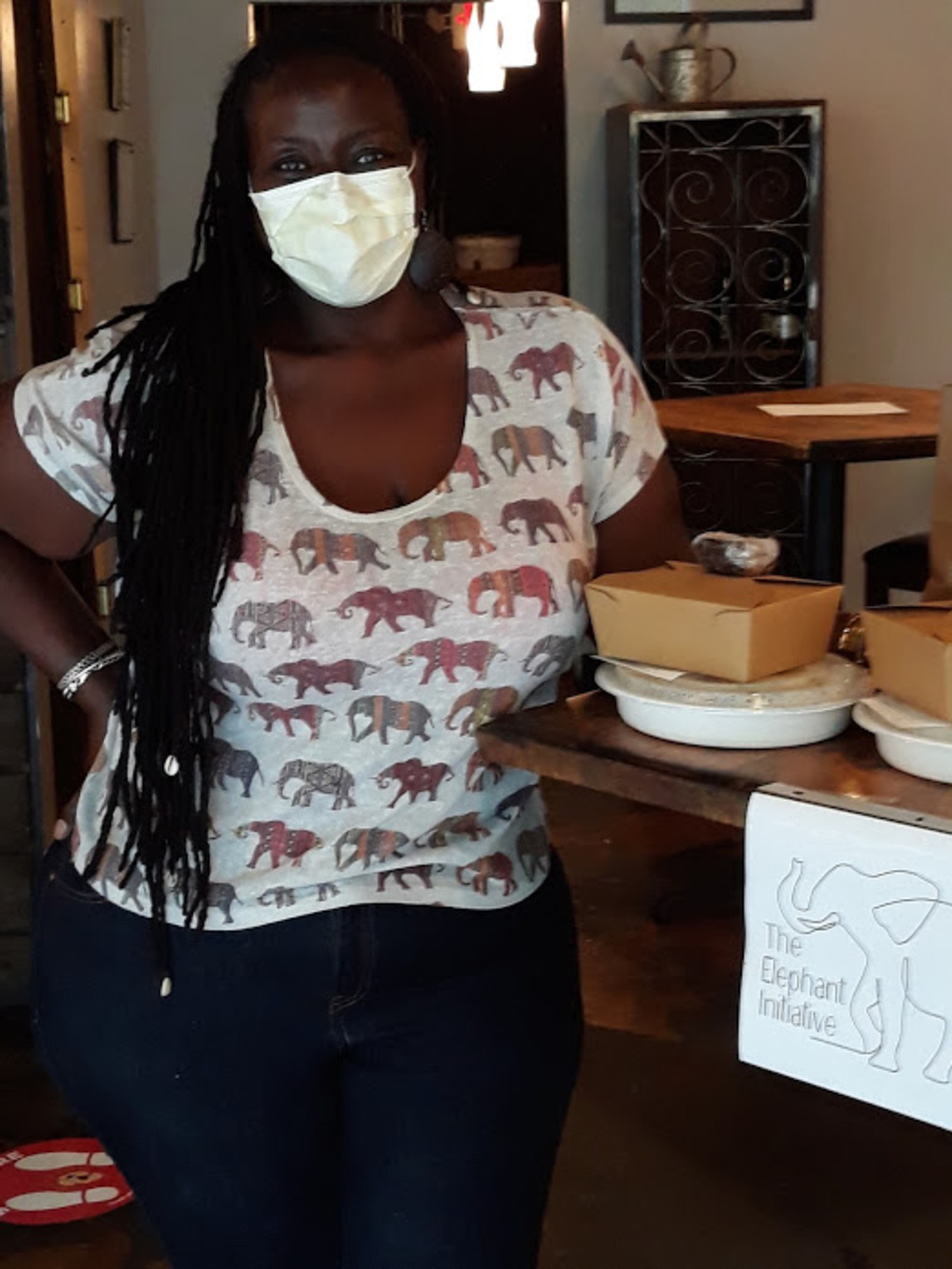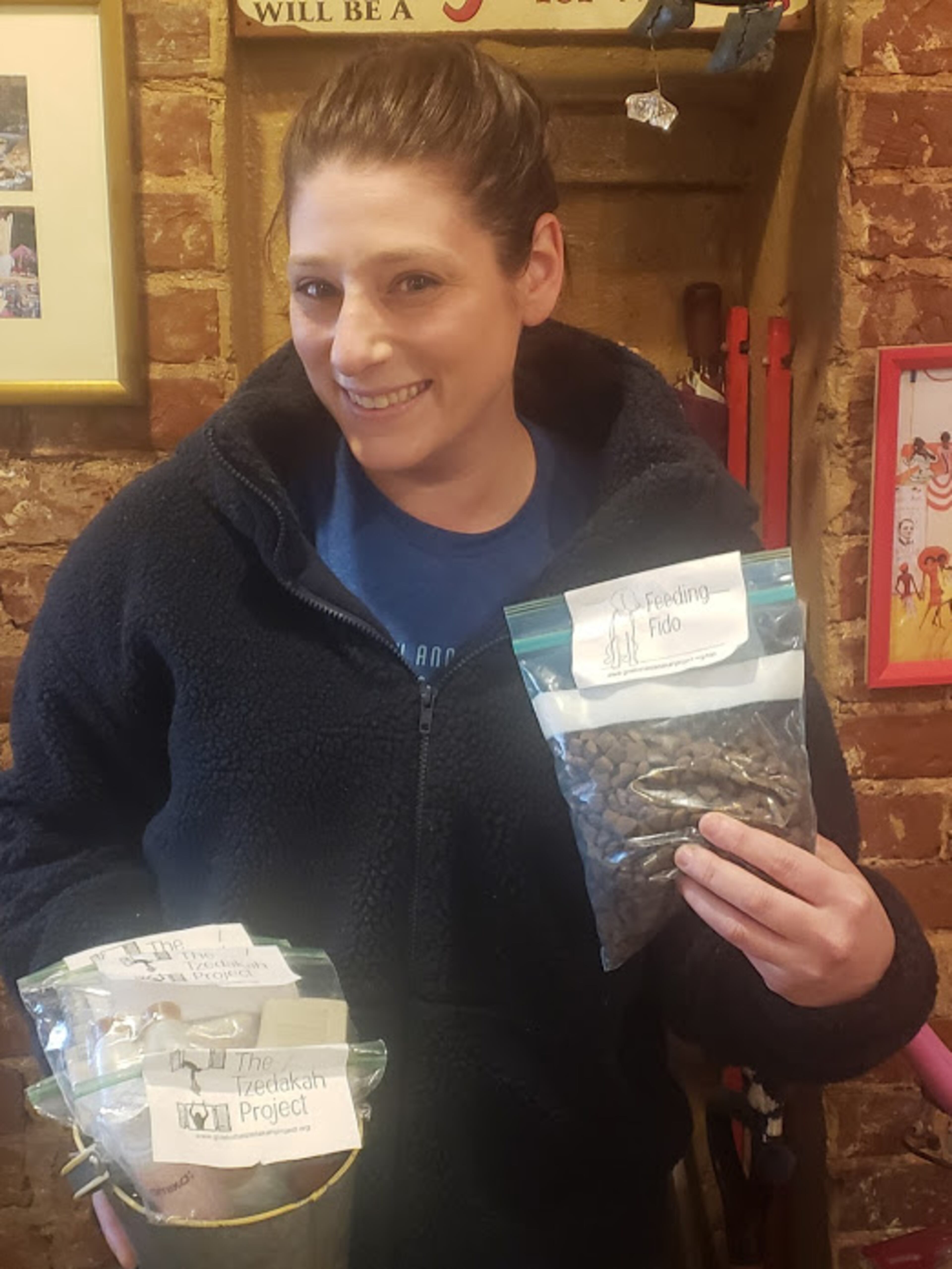Tzedakah helps those ‘falling through the cracks’ during pandemic

Randy D. Adler has been watching the pandemic from his Atlanta restaurant, Babs Midtown, on Juniper Street. It’s his window into the world.
“I’m sitting on a catbird seat,” he says. “I watch people. I hear people, and I get to see what they’re stressing about.”
Adler has been part of Atlanta’s hospitality industry for at least three decades. He sees too many people in the business who need a paycheck, a meal, and a mental break. Last April, he started a nonprofit to help those who lost jobs during the pandemic.
Early on, as businesses began shuttering, the Tzedakah Project was launched to provide meals, employment services and other support to the community through a series of programs.

Tzedakah is a Hebrew word commonly used to signify charity; the nonprofit translates it as “doing the right thing.”
Adler has been active for many years in volunteerism with the Atlanta Jewish Community. He grew up in a home, were serving and giving to others were important.
“My parents always led by example,” he said, explaining that, though they were a low-income family, they never used it as an excuse not to give to others. “Even when we had nothing, we all volunteered,” Adler said.
Adler got his friend, Katie Lewis, to run the nonprofit, and she launched it in two weeks.
“We hit the ground running as fast as we could because we saw there was such an immediate need for all these people who were out of work so suddenly due to COVID,” said Lewis, who recently landed a new job in event planning after being out of work for 10 months.
One of the earlier projects provided meals to the unemployed by partnering with local restaurants. Another project provided free employment services, such as résumé writing, using the volunteer services of job skills professionals.
The current project, The Orion Principle, targets the health of mind, body and spirit. Signups are ongoing for various outdoor exercise activities so people can engage socially.
“It’s letting people meet people, letting them connect,” Adler said, noting the universal pandemic fallout of loneliness.
Various social activities from this project will continue through April – like a beer-tasting tour, a walking tour of the Beltline, yoga and meditation sessions. Everything’s free, but donations are accepted.
For May, the nonprofit is launching a community garden project, The Tiger Lily Memorial, in memory of Adler’s mother, Marcia Adler, who died in May.
Adler and Lewis plan on adding new projects as needs arise. They hear from many friends, who like themselves, have been part of the city’s hospitality industry as caterers, event planners, hairdressers, facility managers, and the like. As large-scale events began canceling, many of these jobs went away.
“They were all falling through the cracks,” Adler said. “There was nobody out there to say, ‘don’t panic, we’ve got you covered. We’re here for you.’”

Both Adler and Lewis can empathize with those they serve because they’re similarly living through the pandemic.
Lewis said she had to apply for food stamps and collect unemployment, both first experiences for her. Adler has had to stay up with constantly changing regulations to keep his restaurant doors open.
Said Lewis: “We wanted to put out the message that we’re here; we get you, we are you.” It’s not like we’re just people who have a bunch of money trying to give back. We are in the same situation that you are.
“Because we are a small, grassroots organization, we can execute a little quicker. We’re not such a huge corporation with levels of approval. We look at the need, look at the budget and say, ‘let’s do it.’”

Adler said he’s “thrilled” with what the nonprofit has accomplished in its first year and will continue to morph the organization as necessary.
“We’re young, and we can pivot very quickly,” he said. “We can change our mission statement to work now, then go back to our core values.
“It’s our duty as people to take care of one another; I firmly believe that with every ounce in my body.”
THE TZEDAKAH PROJECT
Who does it help? Anyone in need, especially those unemployed because of the pandemic.
How to get involved: For projects and signups, go to www.givetothetzedakahproject.org/
What are the needs? Donations, both financial and in-kind. Nominate someone who needs help.
